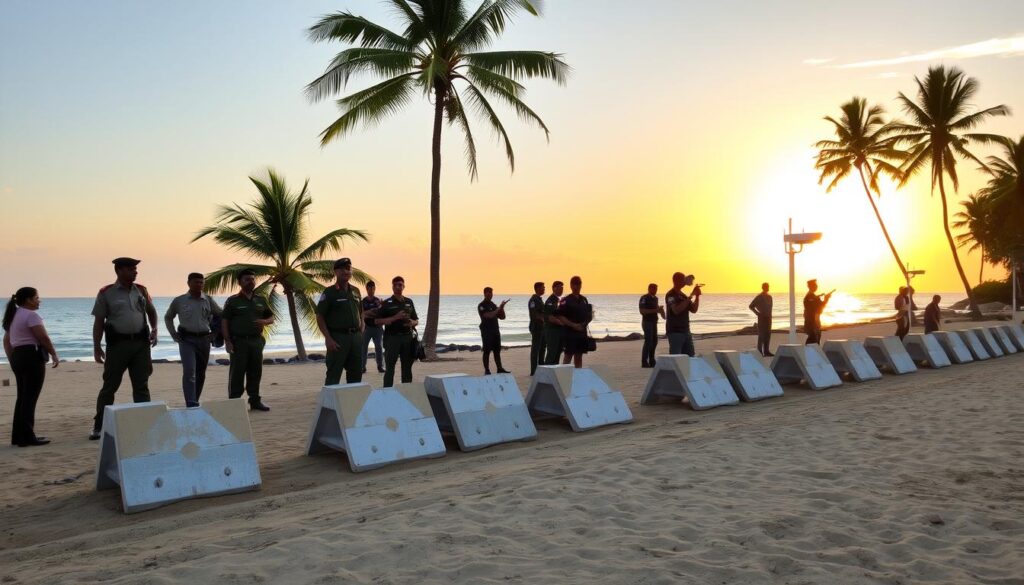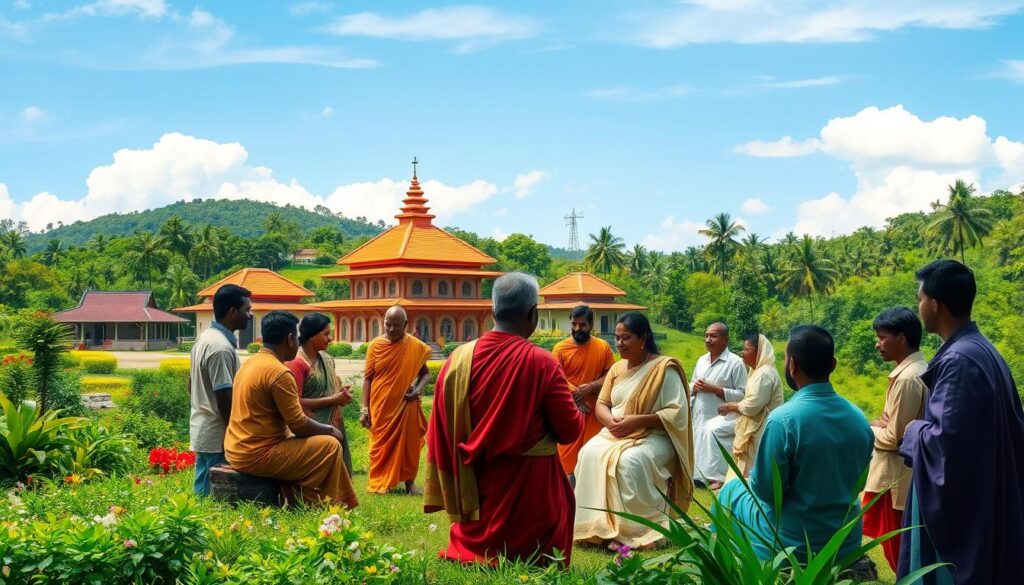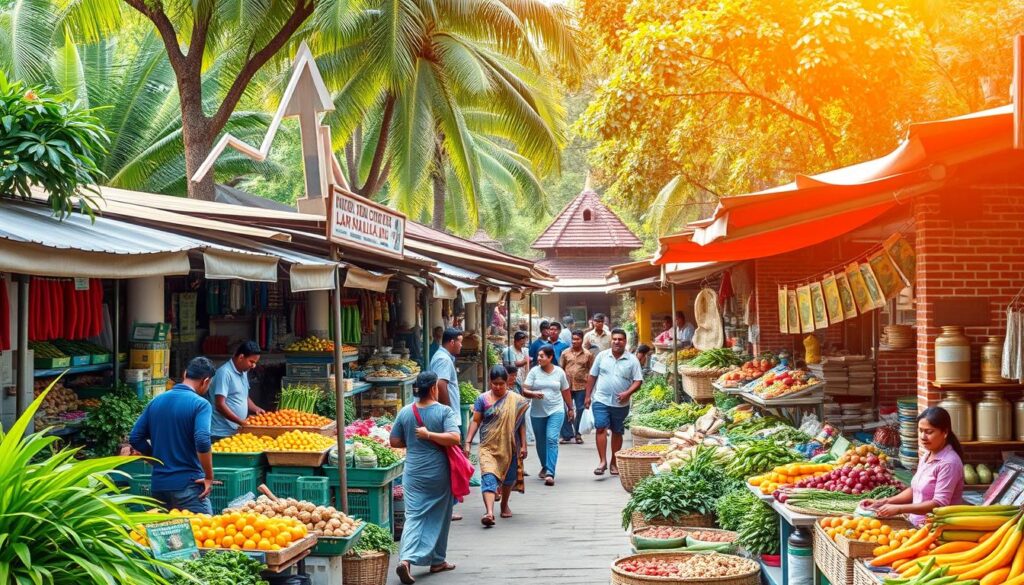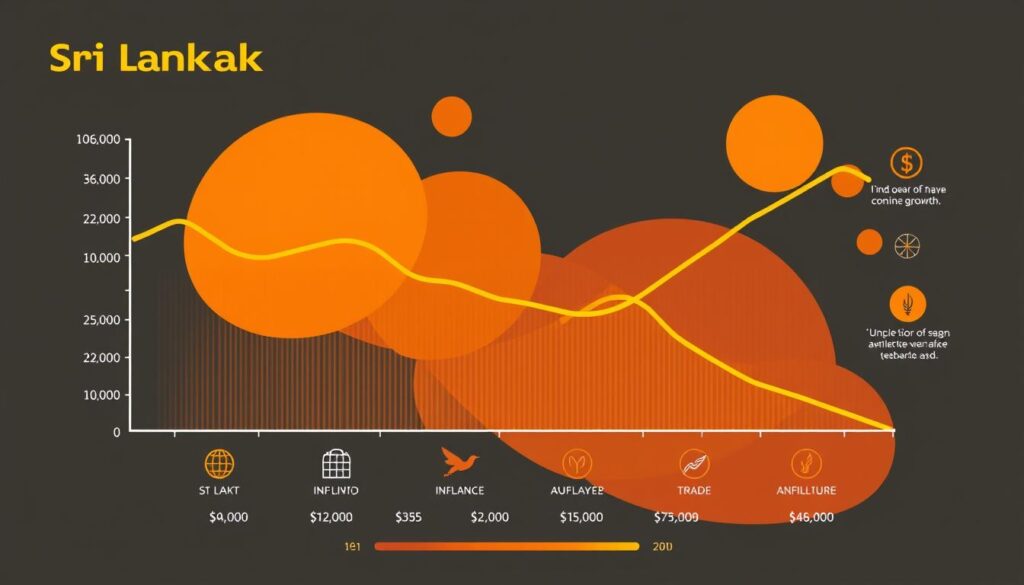Annual Literary Festivals Celebrate Sri Lankan Writing and Poetry
Sri Lanka’s literary scene thrives through yearly festivals celebrating the nation’s rich writing traditions. These 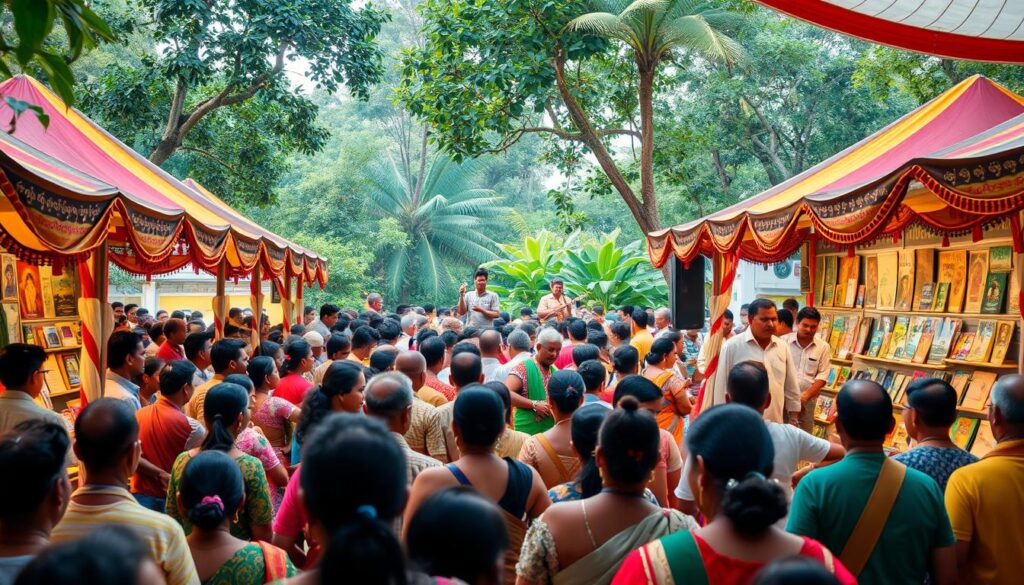 showcase local talent in Sinhala, Tamil, and English literature. The festivals provide a platform for established and emerging writers to share their works.
showcase local talent in Sinhala, Tamil, and English literature. The festivals provide a platform for established and emerging writers to share their works.
The Fairway Galle Literary Festival stands out, held annually in the historic Dutch Galle Fort. Its 2018 edition featured over 110 events, including film appreciation, poetry readings, and gourmet dinners. The festival also recognized outstanding local talent through the Fairway National Literary Awards.
Attendees can engage with renowned international authors at these events. Lord David Puttnam, a British film producer with numerous accolades, has participated. Alexander McCall Smith, author of over 100 books, and Richard Flanagan, a Man Booker Prize winner, have also attended.
These festivals promote and preserve Sri Lanka’s literary heritage. They encourage the growth of Sinhala, Tamil, and English literature. The events nurture emerging writers and poets, celebrating the power of storytelling.
events foster appreciation for the art of language. They provide diverse programs catering to various interests. Multiple concurrent sessions and book launches take place throughout these literary gatherings.
Galle Literary Festival: A Premiere International Event
Since 2007, the Galle Literary Festival has become South Asia’s most anticipated literary event. It unites acclaimed authors in an intimate setting. The festival fosters engaging discussions, writing workshops, and cultural experiences.
The festival offers diverse activities for book lovers. These include panel discussions, poetry readings, and literary lunches. It takes place in Galle Fort, a UNESCO World Heritage Site.
Showcasing Sri Lankan and International Authors
The festival has featured over 70 events and hosted numerous writers. More than 40 international and 50 Sri Lankan authors have participated. This lineup showcases both local and global literary talent.
Diverse Program of Literary Events and Cultural Experiences
Attendees can enjoy a wide array of literary and cultural activities. These include thought-provoking panel discussions and intimate writing workshops. Enchanting poetry readings and delightful literary lunches are also part of the program.
Set in the Historic Galle Fort, a UNESCO World Heritage Site
The festival’s location in Galle Fort adds to its charm. The fort’s colonial architecture provides a magical backdrop. This setting creates an inspiring and unforgettable atmosphere.
Harper’s Bazaar Magazine UK named it the “No.1 Literary Festival in the world” in 2011. After a three-year break, it returned spectacularly in 2016. This comeback reaffirmed its status as a premier literary event.
Other Notable Literary Festivals in Sri Lanka
Sri Lanka boasts a vibrant literary scene beyond the Galle Literary Festival. Several events showcase the island’s rich literary heritage. These festivals celebrate Sinhala, Tamil, and English literature, giving writers platforms to share their works.
The Jaffna Poetry Festival highlights Tamil poets’ resilience and creativity. It unites poets from Sri Lanka and the diaspora, promoting cultural exchange. Attendees enjoy poetry readings, workshops, and discussions on Tamil literature.
Colombo International Book Fair
The Colombo International Book Fair is a key event in Sri Lanka’s literary calendar. It draws publishers, authors, and book lovers from across the country. Visitors can explore books, attend launches, and join literary discussions.
The fair promotes reading culture and supports the local publishing industry. It serves as a platform for literary enthusiasts to connect and share ideas.
Smaller literary events occur throughout the year. The Kandy Writers’ Collective unites writers from central Sri Lanka. The Kilinochchi Book Fair and Batticaloa Writers’ Forum celebrate literature in northern and eastern provinces.
These events offer writers chances to network, collaborate, and share their works. They provide platforms for both established and emerging authors to connect with readers.
Sri Lanka’s literary festivals showcase talent and boost the economy. The Galle Literary Festival drew thousands to the south coast in 2024. It provided a significant economic boost for Galle and Sri Lanka.
The Colombo Stock Exchange (CSE) reported positive economic indicators. Sri Lanka’s stock market became Asia’s second-best performing equity market as of October 25, 2024. It showed a 29.65% year-to-date return in USD terms.
Annasi and Kadalagotu Literary Festival
The Annasi and Kadalagotu Literary Festival celebrates both Sinhala and Tamil literature. It aims to foster cultural exchange between the two communities. The event highlights Sri Lanka’s shared literary heritage.
Attendees can enjoy poetry readings, book launches, and panel discussions. Authors from both languages participate, promoting understanding and appreciation of diverse literary traditions.
Literary Festivals Celebrate Sri Lankan Writing and Poetry
Sri Lanka’s literary festivals showcase the nation’s rich heritage. They celebrate established and emerging writers in Sinhala, Tamil, and English. These events promote new voices and preserve Sri Lanka’s cultural legacy.
The Galle Literary Festival, started in 2005, is a top international event. It attracts renowned authors and intellectuals worldwide. The festival offers author talks, panel discussions, book launches, and workshops.
In 2024, the 11th edition will feature international authors. It will explore themes in fiction, non-fiction, and poetry. The event engages readers of all ages and interests.
Other notable festivals include the Jaffna Literary Festival and Colombo International Book Fair. These events showcase emerging writers through poetry slams and competitions. They help grow and preserve Sri Lankan literature.
Preserving Sri Lanka’s Cultural Legacy
These festivals celebrate writing and preserve Sri Lanka’s cultural heritage. They promote works in Sinhala, Tamil, and English. This highlights the diversity of Sri Lankan literature.
The events foster cultural exchange and community engagement. They nurture a love for the arts. This ensures Sri Lanka’s literary traditions thrive for future generations.
Conclusion
Sri Lanka’s annual literary festivals are vital to its literary community. They celebrate writing and poetry in Sinhala, Tamil, and English. These events showcase authors’ works and foster intellectual exchange.
The Galle Literary Festival and others draw global participants. Writers, poets, and literary fans come together at these events. They offer diverse programs like book readings, panel discussions, and workshops.
These festivals preserve and promote Sri Lanka’s literary heritage. They encourage new talent and inspire love for literature in younger generations. The events bring authors and readers together, celebrating the power of words.
Literary festivals strengthen Sri Lanka’s position in South Asian literature. They showcase the country’s rich cultural traditions and artistic expression. These events continue to grow in popularity and scope.
